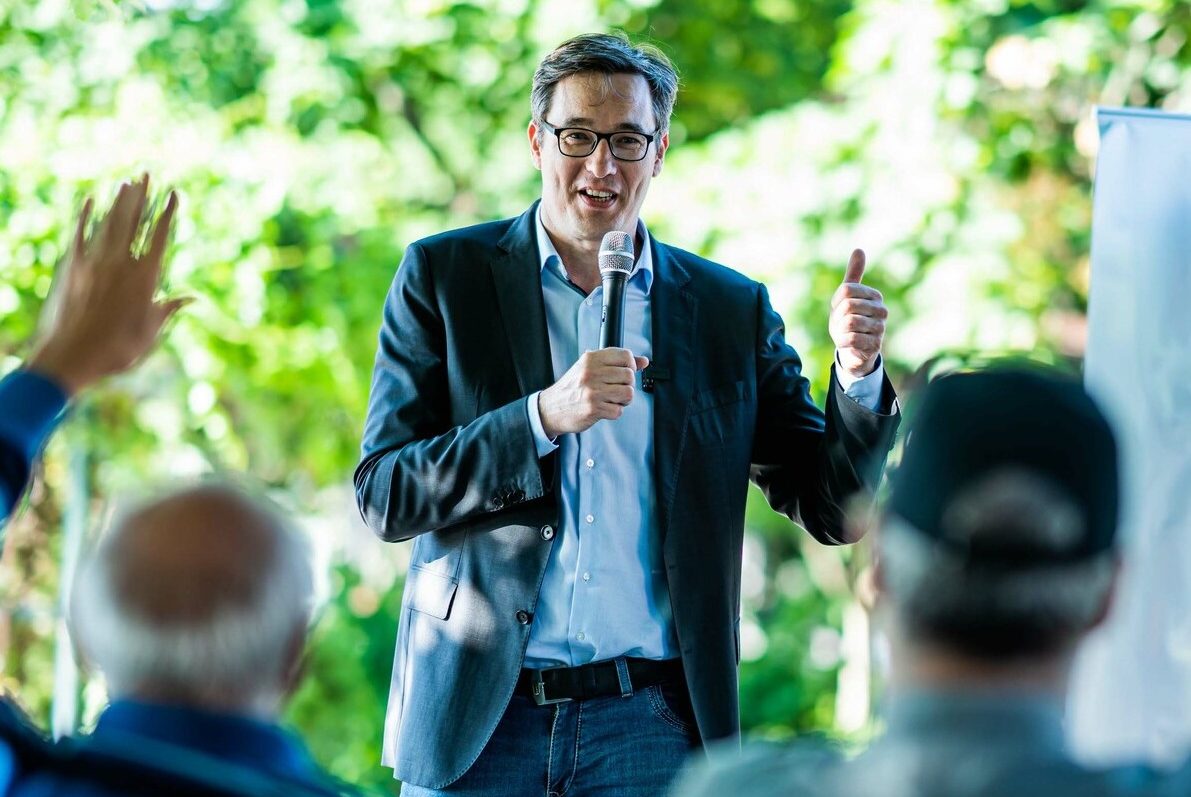
A large sum of money, mainly in foreign currency, was transferred to the account of the Ninety-Nine Movement Association founded by Gergely Karácsony.Continue reading

A private individual has filed a complaint on suspicion of budget fraud in connection with the obscure financing of the Ninety-Nine Movement Association founded by Budapest Mayor Gergely Karácsony, Magyar Nemzet reported. According to an intelligence service report, the official representative of the association, Gábor Perjés, paid half a billion forints (EUR 1.3 million) into the association’s account in several installments, but nothing is known about the origin of the money.
István Tényi, who has turned to the National Tax and Customs Administration regarding the case of the Ninety-Nine Movement Association, is formerly a member of the Fidesz government party. He became nationally known through his denunciations of public affairs of public interest.
A recent intelligence report revealed that Gábor Perjés, a politician of the Dialogue for Hungary – Greens party and a fellow party member of the mayor, paid a total of HUF 506 million (EUR 1.3 million) into the Ninety-Nine Movement Association’s account on 19 occasions between August 2021, and September 2022.
Five of the transactions exceeded HUF 50 million (EUR 133,000), and most of the payments were made in foreign currency.
To challenge Viktor Orbán in the elections, the Ninety-Nine Movement Association financed Gergely Karácsony’s campaign in the opposition prime ministerial candidate primaries in 2021. However, the mayor quickly withdrew in favor of Péter Márki-Zay, even though he had previously said he would only step down if he were to be “hit by a tram.” As it turned out, Perjés was still paying millions of forints into the association’s account almost a year after the movement became inactive.
Karácsony reacted to the news on his Facebook page recently, writing that fundraising boxes were set up at Ninety-Nine Movement Association’s events, with most of the money collected there (i.e. from micro-donations), and in all cases Gábor Perjés paid them into the association’s account.
However, this explanation is doubted by many observers, even among opposition sympathisers. An unnamed socialist politician said to Radio Free Europe that if they do not find out exactly what happened, the whole 2024 cooperation, including the election itself, could be at stake for them. Next year, municipal elections will be held in Hungary, along with the European Parliamentary elections.
Zoltán Lomnici Jr., a constitutional lawyer, told public television M1 channel that the investigative authority and the National Tax and Customs Administration may also investigate the case of the shady origins of the more than half a billion forints received by the mayor’s movement. He said that
money laundering could also be suspected in connection with the sums received by the Ninety-Nine Movement Association.
The lawyer pointed out that if someone hides wealth gained through criminal activity or conceals its origin, he or she is committing money laundering. The suspicion may be heightened if the money is in cash. He added that the current case in Hungary is quite specific, with intelligence reports, testimonies, and statements. As an example, he recalled that
opposition prime ministerial candidate Márki-Zay had previously stated as a fact that the mayor of Budapest had campaigned with half a billion forints, thus confirming the information that could be gleaned from the intelligence reports.
Máté Kocsis, leader of the Fidesz parliamentary group, told Radio Kossuth that Karácsony could be involved in a money laundering case. He said that he thought that the claims of the mayor about the origin of the sums, that the money was in closed donation boxes, bordered on the ridiculous. He pointed out that
the mayor did not answer how many such boxes were in operation and where they were located, nor did he explain how it was possible that donors deposited their donations almost exclusively in pounds and euros.
He stressed that there was nothing wrong with the current rules on campaign finance, but that left-wing parties had conspired with foreign billionaires to circumvent them ahead of the 2022 general election, overturning a practice that had been based on political consensus since 1990. Since the fall of communism, there has been a consensus that foreign money should not be used for campaign purposes, as foreign financiers buying their way into Hungarian governance would endanger Hungary’s independence with unforeseeable consequences, he emphasized. Since the opposition has broken this written and unwritten rule, the law will have to be tightened, the politician added, noting that the concept could be ready by the summer, and could be debated by parliament in the autumn session.
Suspicions of foreign funding of opposition parties have been raised in the last few months in connection with the 2022 parliamentary elections.
The Everybody’s Hungary Movement, linked to opposition prime ministerial candidate Márki-Zay, received 1.85 billion forints (EUR 5 million) in foreign funding through the Action for Democracy organization in the US.
At the time, opposition figures claimed that this sum had been raised from micro-donations.
Last week, Márki-Zay admitted in a television program that “the purpose of these funds and subsidies was to overthrow the most corrupt government in Hungary’s thousand-year history.”
If the suspicion about the Ninety-Nine Movement Association’s funding proves to be true, the amount of foreign funding received by the opposition during the election campaign would now exceed 4.5 billion forints (EUR 12.2 million).
Featured photo via Facebook/Gergely Karácsony